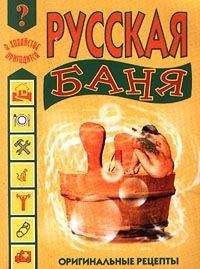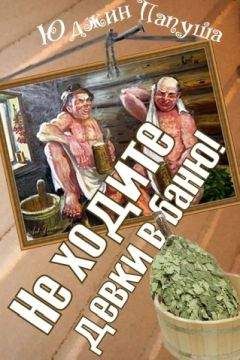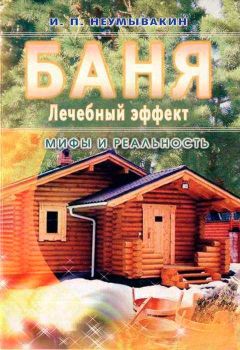John Locke - A Girl Like You
“You still haven’t told me what Rachel’s blood test has to do with this.”
“Pull up a chair,” Sam says, “because here’s where it gets interesting.”
“I hope to hell it does,” I say, “because if I wrote all this in a book, my readers would be snoring by now.”
25.
“There is no cure for the Spanish Flu,” Sam says. “And scientists can’t make a vaccine for it, because the live virus has only been seen twice. The first was in 1995, at Walter Reed Army Medical Center, when a researcher found a preserved tissue sample from a Spanish Flu victim who died 77 years earlier. Unfortunately, that sample was taken from a soldier who died before the flu mutated into the deadliest form.”
“I thought you said this was getting interesting,” I say.
“By the end of 1918 the flu had spread throughout the world,” Sam says, “including Alaska. In 1997 a scientist found the body of a young woman he and some Eskimo helpers dug out of the permafrost. The flu-causing agent was still in her lungs. They’ve tried to isolate and identify the genetic code for that strain ever since.”
“So?”
“I think they found it.”
“So why can’t they create a vaccine?”
“If I’m right, they lack a live strand of genetic code that contains a natural receptor to the exact form of the virus that wiped out all those millions of people. They’ve got the wild duck and pig strains isolated. But the chances of finding the perfect human genetic match are…impossible to one.”
“But somehow Rachel has it?”
“That’s my guess,” Sam says.
“I always said Rachel was one in a million.”
“This would make her one in six billion.”
“And they’ve what, checked every blood sample in the world every day until they finally found the receptor gene in hers?”
“For the last five years. In developed countries, anyway.”
“But how?”
“Computer analysis.”
“Wouldn’t every doctor or blood lab tech be able to recognize it?”
“Not if they don’t know what to look for. It would show up as an anomaly. No one is going to read the results and say, ‘Aha!’”
“Except the scientists who know what to look for.”
“That’s right. Most people would look at Rachel’s blood test results and think the sample had been contaminated.”
“So why kill her doctor? Why try to kill Nadine? Why kidnap Rachel?”
“You mean, why not just ask her to donate enough blood to start creating a vaccine?”
“Exactly.”
“Think of the implications for bioterrorism. What would happen if word got out that Rachel was the missing link to the deadliest virus the world has ever known?”
“I suppose all sorts of good and evil people would be clamoring to kidnap her and harvest her receptor gene.”
“Yes, but the bad guys could also inoculate themselves against the flu, and unleash it on the rest of the world.”
“Holy shit!”
“I told you it was interesting.”
“So you think our government kidnapped her and is holding her somewhere to harvest her blood?”
“At the very least.”
“What’s that mean?”
“If you were the government, what would you do?” Sam says.
“Raise taxes?”
“Funny. They can’t take a chance on her dying. So they’ll take as much blood as they can, freeze it, and harvest her eggs, create children who will continue supplying them with genetic code.”
“They want Rachel’s children?”
“That would be my guess.”
“How much blood do they need?”
“To inoculate the world? Every year? I have no idea, but it’s probably more than any twenty people could provide. How much blood is required to yield a single proper genetic strand? I don’t know. But it’s a lot, because they’ll have to combine the proper strand from a duck, a pig, and a human. And even though they’ve isolated the proper components, the flu is an RNA virus.”
“You mean DNA?”
“No. DNA has double strands of genetic code, RNA has just one.”
“So?”
“RNA is highly unstable, and breaks down in hours, not days.”
“If they get the right combination, how do they make the vaccine?”
“They have to create the actual Spanish Flu virus in the lab. Then culture it in eggs.”
“Rachel’s eggs?”
“No, chicken eggs, you dolt.”
He sighs at my stupidity, then continues. “They inject a minute portion of the live virus into a chicken egg. After a few days, that creates maybe a teaspoon of vaccine. It will take millions of gallons to create enough vaccine to inoculate the world, and they have to do it one egg at a time.”
“That would take forever.”
“Not one egg then a second one,” Sam says. “They start with a few hundred, then a few thousand, then tens of thousands at a time. It involves time and people. And millions of chicken eggs. And money, and resources. And that’s just for one flu season. And only if the Spanish Flu turns up that year. In other words, they won’t start producing the vaccine until they know they need it.”
“They’d go to all that trouble for something they won’t even use?”
“No. They’d go to all that trouble if the Spanish Flu comes back. And they’ll keep Rachel locked up until that happens. And if it doesn’t happen in her lifetime, they’ll have her offspring on hand in case that strain of flu breaks out in their lifetimes.”
“You’re telling me that someone plans to create children and lock them up as lifetime blood donors for a flu vaccine that only occurs when a human infects a pig who gets infected by a duck who re-infects the human?”
“By George, I think you’ve got it!” Sam says.
“Yeah, that sounds like a government project,” I say. “But no one is going to lock up Rachel’s kids. Not on my watch.”
Sam laughs. “Like there’s a lot you can do about it. If I’m right, Rachel has just become the most important person in the world. They’ll have her locked up so tight the President himself won’t be able to find her. I bet there aren’t five people in the world who know where she is.”
Lou and I exchange a look.
Sam says, “How could you possibly locate her?”
“By locating those who need her.”
He frowns. “If you do find her, how could you possibly hope to rescue her?”
“I’ll find a way. Trust me on that.”
Sam says, “You’re insane.”
“In my line of work, being insane is a plus.”
Sam shakes his head. “Even if you find her, and rescue her, where could you possibly go? How could you keep the world from finding you?”
“I haven’t worked that part out yet. But tell me this: how much would a vaccine like that be worth?”
“Shut up.”
“That much, huh?”
“There is no sum too high to demand.”
“A zillion dollars?” I say.
“There’s no such number.”
“All the riches of the world?”
“Beyond what it takes to run the world, yes.”
“Sounds like a zillion dollars to me,” I say.
“Are you done with me?” Sam says. “If we’re through, I’d like to go home now.”
“First, let’s figure out who would be in charge of creating the vaccine.”
“Some drug company. Or companies.”
“American, I presume, because of security issues. American companies that have experience creating large quantities of flu vaccine. That’s got to be a small number, wouldn’t you think?”
“Less than a half-dozen, probably.” He looks at me. “What are you planning to do?”
“Save Rachel’s children.”
“She doesn’t have any children, you idiot.”
“And I’m going to keep it that way.”
“You truly are insane.”
26.
It’s a lot easier to kill someone than kidnap them.
Especially if you’re working alone.
But what’s easier still is breaking into their home while they’re away, and waiting till they return.
Sam wants to hurry back to his strange life in Louisville, but I’m keeping him locked up at Sensory in case I want to test the accuracy of the comments I expect to get from the people I plan to visit. It’s good for Sam to stay there another night anyway, since he hasn’t fully recovered from the nip he got on the ass.
According to the information Lou dug up for me, Quentin Palmer heads the Flu Division of the Center for Disease Control. I don’t know if Quentin can help, but since he lives a scant hour from Sensory Resources, he’s a convenient place to start.
It’s 6:00 p.m., Sunday, and I’m in one of Sensory’s non-descript cars, driving through Quentin’s stately neighborhood. These aren’t multi-million dollar estates, but they’re expensive, sprawling, older homes with ancient oaks and mature pine. I stop a hundred feet from Quentin’s two-story, bleached stone home. The house itself looks sturdy, but the roof needs attention. The red shingles are faded and there’s evidence of dry rot. I stare at the roof a moment, searching for the word that best describes it. The one that comes to mind is tired. Quentin Palmer’s roof is tired. It’s done its job, but remains there stoically, unappreciated, fighting the elements bravely, like an old prize fighter who’d quit if he could, but he needs the money.
Quentin’s house sits on three unkempt acres. As I’m viewing it, the garage door suddenly starts to rise, and I see a navy Escalade backing out. I put my car in gear and drive past the house, make the block, and keep moving until I find a “For Sale” sign, which turns out to be a quarter mile from Quentin’s house. I turn into that driveway and stop in front of the garage doors. After verifying no one’s home, I walk to Quentin’s house.
I hadn’t been able to tell if the whole family—dad, mom, and Shelby—had been in Quentin’s Escalade, but it’s dinnertime, so it’s likely they were all heading out for a bite together. I didn’t have a formal plan, but figured to stage a home invasion, tie the wife and daughter up, and rapidly beat some information out of Quentin. After all the crap Sam put me through, I was looking forward to a more straight-forward method of getting answers.
I’m quite skilled at breaking and entering, but right now I don’t feel like being subtle. Like Quentin’s roof, I’m tired. Tired of dealing with Sam’s bullshit, tired of dealing with the government, tired of worrying about Rachel. I feel like kicking the door down. Since the Palmer’s back door is completely secluded from the neighbors, and since the closest neighbors are more than fifty yards away, I decide to kick it just right of the deadbolt, and take my chances the Palmers don’t have a burglar alarm. Or if they do, it’s not set. But then I remember reading somewhere that twelve percent of all families fail to check the doors and windows before going out to dinner. I don’t know if that’s true, but it’s worth the effort to see. I try the door knob and—no big surprise—it’s locked. I go around to the side and find the sliding door unlocked. Score one for the article. And one for me as well, because the house is silent. Meaning, if they do have a burglar alarm, it wasn’t set.
A minute later, I learn why.
“Thought you were having dinner with your family,” I say, turning the corner and finding Quentin Palmer sitting at his desk.
Quentin jumps to his feet. “Wh-Who are you? What’s the meaning of this? What do you want?”
I enter his office. Quentin is very nervous.
“Please,” I say. “Have a seat.”
“I’m not a wealthy man,” he says. “Whatever you might think, we’re barely making ends meet.”
“Really?”
“It’s true. I swear.”
“Why’s that, do you think? I know you earn a good wage.”
He turns his palm up and gestures meekly, indicating not just the room we’re in, but his life in general. “My wife lost her job last year. The house is eating us alive. Private school tuition, car payments, college on the horizon…” Quentin shakes his head.
“How can I help?” I say.
“Excuse me?”
“Sounds like you’re in crisis. How much cash would it take to get you through this tough time in your life?”
Quentin takes a seat at his desk. He’s still concerned, but now he’s confused, as well.
“Aren’t you here to rob me?” he says.
“Do I look like a thief?”
“A little.”
I frown, and point to one of the chairs facing his desk. “May I?”
He nods.
“If you don’t mind, I’m going to slide this chair to the side. That way I can see if anyone tries to sneak up behind me.”
“There’s no one home but me,” he says.
“You were surprisingly quiet,” I say.
He looks at his computer. “I get wrapped up in my work.”
“Actually, that’s why I’m here, Quentin. To discuss your work.”
“I don’t understand.”
I open his printer tray and remove a sheet of paper. “Got an ink pen?” I ask.
He starts to open his desk drawer. I say, “Freeze!”
He does.
“I doubt you have a gun in there, but I’d feel ridiculous if you shot me.”
I get up, push his chair back, and check the drawers. As I suspected, there’s no gun. No knives, either. Or throwing stars, nunchucks or water moccasins. I do find a pen, and hand it to him.
“What’s this about?” he says.
“I want you to write some names for me. Specifically, the name of each and every drug company that manufactures flu vaccine.”
“Are you serious?”
“Do I look serious?”
He looks at me. “Yes.”
“Then do it.”
“Well, I know many of them, of course, but not all. The big companies use subcontractors for some of the work. Knowing the names of these companies doesn’t fall under my job description. But none of this information is secret. It’s a matter of public record. Anyone with a computer can obtain it.”
“I know that, Quentin. I’m starting slowly, building a rapport. Trying to create a bond with you. Of sorts.”
“I appreciate that,” he says.
He writes down the names of seven companies before I stop him.
“That’s good enough.”
He hands me the sheet. I already know these names. “You’re doing fine,” I say. “Now I want you to answer six very important questions.”
Quentin can tell by my tone I’m expecting complete candor. He swallows. “I’ll be fully cooperative,” he says.
“Glad to hear it. Question number one: have you ever heard of the Spanish Flu of 1918?”
He looks at me curiously. “Yes, of course.”
“Good. That’s a throwaway question. Here’s number two: has a vaccine been invented that could prevent the Spanish Flu from coming back?”
“No.”
Quentin is relaxing a bit, though I have no idea why.
“Question three: look at me.” He does. “Look directly into my eyes, and do not look away when I ask you this next question. Do you understand?”
He looks into my eyes and holds my stare. Then says, “Yes, sir.”




